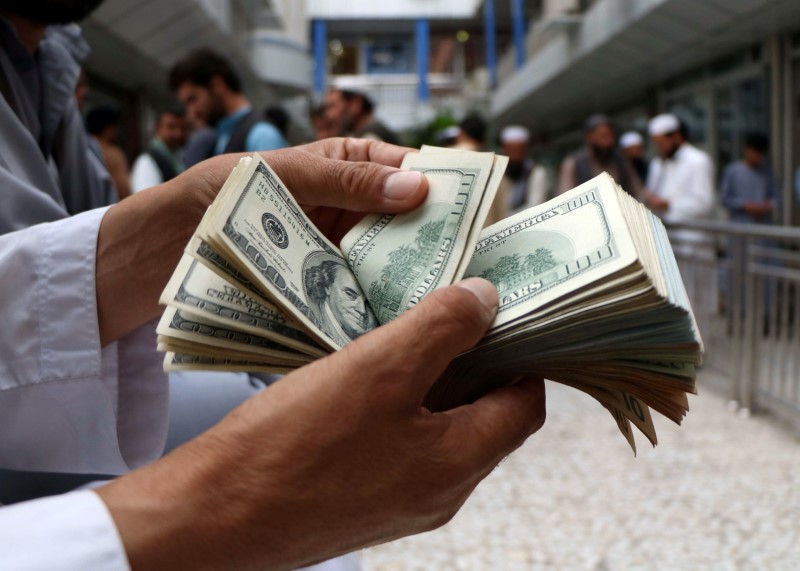By Tom Westbrook
SINGAPORE (Reuters) – The dollar sat near its highest levels in months on Monday as the spread of the Delta coronavirus variant made investors nervous about the global recovery and sent money into safety.
The risk-sensitive Australian dollar fell to its weakest against the greenback since December early in the Asia session and hit a five-month low against the safe-haven yen. The dollar also rose broadly against Asian currencies.
Daily infections have been surging from the United States and Europe to Asia and the global seven-day average of new cases each day is over half a million for the first time since May. Traders are holding their breath as England lifts most social curbs.
The Aussie was last down 0.2% at $0.7381 and the New Zealand dollar also fell 0.2% to $0.6986. The yen, which rose broadly, was up 0.2% at 109.90 per dollar and up by about the same margin at 129.69 per euro.
“The market is really trading on the uncertainty in the air around COVID,” National Australia Bank (OTC:NABZY) senior currency strategist Rodrigo Catril said on the bank’s morning podcast.
“That is the dominant factor,” he said, though adding a surprise fall in U.S consumer sentiment had also unsettled investors.
The U.S. dollar index held at 92.729, not far from last week’s three-month top of 92.832. The euro fetched $1.1801, just a touch away from last week’s three month low of $1.1772.
The week’s data calendar is fairly bare until Friday, when global purchasing managers’ index figures are published, with policy and virus response expected in focus in the meantime as lockdowns tighten and expand in Asia.
There is an outside chance China’s benchmark loan prime rate is lowered on Tuesday and the European Central Bank, which meets on Thursday, has flagged a guidance tweak.
Sterling, meanwhile, teetered at $1.3755, its lowest in more than week, as hopes ride on so called “Freedom day” with England betting its rush to vaccinate the population will mean people are less likely to fall seriously ill with COVID-19.
Relaxed rules have already been greeted by a mixture of nerves and excitement by London clubbers in the wee hours, but the day also begins with epidemiologists sceptical and the prime minister, finance minister and health minister themselves isolating as cases spread.
“The Netherlands relaxed all restrictions and saw cases soar from 500 to 10,000 per day in two weeks, and the government has had to reverse course and is now waiting nervously to see what happens to hospitalisations,” said analysts at ANZ Bank.
“The UK’s ‘freedom day’ today has some worried it could have a similar experience.”
Cryptocurrencies were steady in morning trade, with bitcoin holding near strong support at $31.590.
Elsewhere the dollar continued its march higher on Asia’s emerging market currencies, sending the tourism-dependent Thai baht to a fresh 15-month low and the Malaysian ringgit to its lowest in nearly a year.



